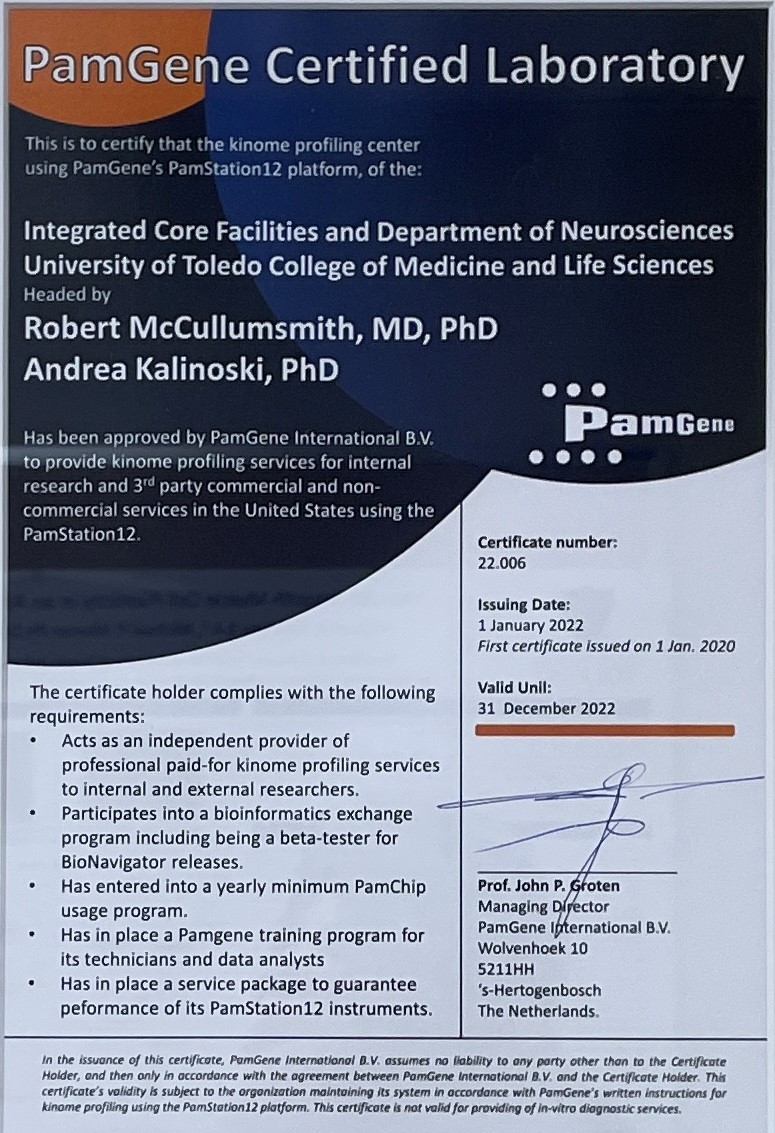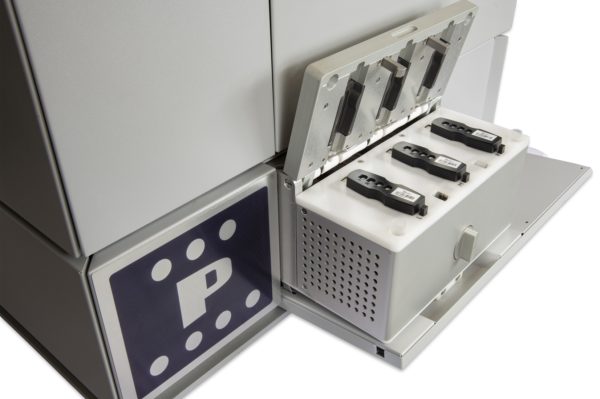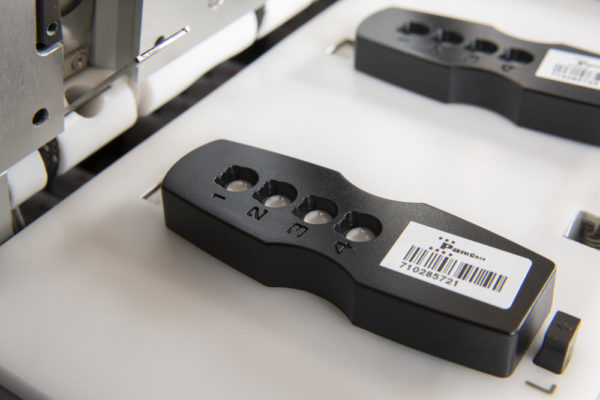University of Toledo kinome core: Pamgene12 Core Facilities
The PamStation®12 developed by PamGene is a multi-use instrument utilized in combination with PamChip4 arrays. This system’s main use is to serve as a kinome array to identify kinase activity from lysates of cells or tissue. Arrays can be used to investigate Tyrosine Kinase (PTK) or Ser/Thr Kinase (STK) activity by analyzing phosphorylation dynamics toward 15 amino acid long putative phosphorylation sites derived from human sequences. Investigators can assess kinase activity and screen reactivity towards 196 targets in the PTK chip format and 144 targets in the STK chip format. Substrates which become phosphorylated are detected via antibody based fluorescence to allow for the generation of real time kinetics.
The University of Toledo Kinome Core PamGene12 Core Facilities Kinome Profiling Center of the Integrated Core Facilities and Department of Neurosciences at the University of Toledo College of Medicine and Life Sciences headed by Robert Smith, MD, PhD and Andrea Kalinoski, PhD and is approved by PamGene Invernational B.V. to provide kinome profiling services for international research and 3rd party commercial and non-commercial services in the United States using the PamStation12.
The PamGene12 is located in the basement of the Block Health Science Building room 057.
The UT Kinome Core is an official PamGene Certified Laboratory which means that the certificate holder is in compliance with the following:

- Acts as an independent provider of professional paid-for kinome profiling services to internal and external researchers.
- Participates into a bioinformatics exchange program including being a beta-tester for BioNavigator releases.
- Has entered into a yearly minimum PamChip usage program.
- Has in place a Pamgene training program for its technicians and data analysts.
- Has in place a service package to guarantee performance of its PamStation12 instruments.
university of toledo kinome core: pamgene12 core facilities charges menu
basic kinome array services:
Serine/Threonine kinase (STK) chip: $450/chip (4 wells)
- Includes basic Pamgene12 data analysis
- Includes Standard Kinome Resampling Analysis (KRSA)
- Includes rerun of samples due to CHIP failure (i.e., if all replicates of an individual sample fail).
- Includes protein assays, inhibitors, and sample prep for Pamgene12 device
- Includes (*up to four unique samples)
- Cost for additional samples provided upon request
- Does NOT include tech time to run machine (see "TECHNICAL SERVICES" below).
Phosphotyrosine kinase (PTK) chip: $450/chip (4 wells)
- Includes basic Pamgene12 data analysis
- Includes Standard Kinome Resampling Analysis (KRSA)
- Includes rerun of samples due to CHIP failure (ie if all replicates of an individual sample fail).
- Includes protein assays, inhibitors, and sample prep for Pamgene12 device
- Includes (*up to four unique samples)
- Cost for additional samples provided upon request
- Does NOT include tech time to run machine (see "TECHNICAL SERVICES" below).
technical services:
Tech time for 1-3 CHIPs: $250/run (1-3 CHIPs)
- Tech time to operate and run CHIPs on Pamgene12 device
Tech time for downstream target validation: $400/target
- Customer provides all required samples (antibodies, recombinant proteins, etc.) otherwise cost for each item (including shipping) will be included in the total
- Core laboratory conducts western blot and activity assays for kinases and downstream targets
- Mass spectrometry cost will be billed separately
AdDITIONAL Kinome Array Services:
Standard Kinome Resampling Analysis (KRSA): $300/run (1-3 CHIP analysis).
- This is targeted for users who have not had their samples run at the UT kinome core
- Analyses of Pamgene12 PTK or STK datasets only (no chip runs)
- Raw data provided to UT core via Pamgene12 server access
Advanced Kinome Analysis (KRSA): $100/hr., minimum 5 hrs.
- For users seeking advanced bioinformatics treatments of datasets
- Only available for datasets where the UT core has performed Standard KRSA analyses already
- Options include pathways analyses (Enrichr, PiNET), transcriptional profiling (iLINCs), and others
For questions or inquiries contact Dr. Robert Smith, MD, PhD here




